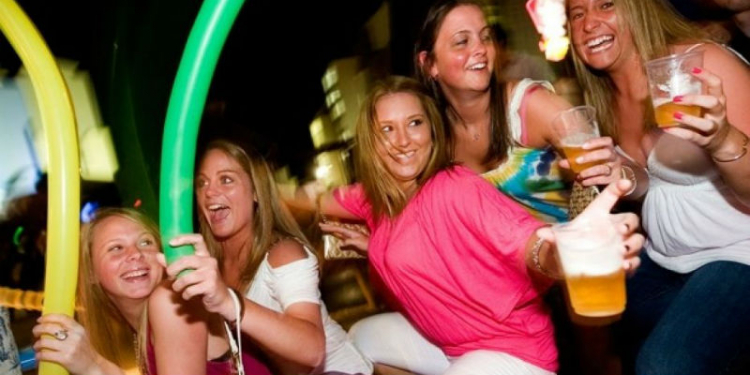The FINANCIAL — That people often turn to alcohol when experiencing negative emotions is well-known (hence the phrase ‘drowning one’s sorrows’). But the emotion itself could be inhibiting the ability of some drinkers to prevent themselves from drinking. This was among the findings of psychologist Henry Austin in his PhD research. He will defend his thesis on Tuesday, 8 March, at the University of Amsterdam (UvA).
An individual’s drinking behaviour, from a psychological perspective, is governed by two competing processes. The first process is called an ‘approach tendency’, which is humans’ automatic behavioural inclination to approach something, such as alcohol. The other process is ‘inhibitory control’ or, simply put, inhibitions: the ability to control an automatic impulse.
Austin: ‘What I was particularly interested in is that humans often drink in emotional situations – we drink to celebrate at weddings, but also to commiserate at funerals. And emotions are frequently associated with increased alcohol intake. So what is the impact of positive or negative moods on the psychological processes which underlie drinking behaviour?’
Hakuna Matata or Bambi’s mother dying
To answer the question of how moods affect our drinking behaviour, Austin ran a selection of lab experiments. Using a variety of computer-based tasks, he measured volunteers’ urges towards alcohol and their ability to inhibit behaviour in the context of alcohol. The volunteers would then undergo a mood-manipulation task: they watched clips from well-known movies – for example, the Hakuna Matata sequence from The Lion King to improve their mood, or Bambi’s mum dying to create a negative mood. Their urges towards alcohol and ability to resist were then measured again, according to the University of Amsterdam.
Hakuna Matata or Bambi’s mother dying
To answer the question of how moods affect our drinking behaviour, Austin ran a selection of lab experiments. Using a variety of computer-based tasks, he measured volunteers’ urges towards alcohol and their ability to inhibit behaviour in the context of alcohol. The volunteers would then undergo a mood-manipulation task: they watched clips from well-known movies – for example, the Hakuna Matata sequence from The Lion King to improve their mood, or Bambi’s mum dying to create a negative mood. Their urges towards alcohol and ability to resist were then measured again.
Austin: ‘We saw a variety of outcomes, but probably the most interesting was that, for people who tend to drink more when in a negative mood, their inhibitory control was impaired when they were in such a mood. This wasn’t the case when they were in a positive mood. So it might be that, for people who drink in response to negative emotions, those emotions are actually impairing their ability to inhibit their drinking behaviour.’
Strong urges and weak gatekeepers
People who are heavy drinkers show a biased approach tendency to alcohol, which means that in their environment they are more likely to move towards alcohol stimuli. In heavy drinkers this is often combined with weakened inhibitory control, so a strong urge meets a weak behavioural gatekeeper and that can lead to problems. Even though these people could be highly motivated to stop drinking – they could be spending too much money on it or losing relationships because of it – they still have an automatic behavioural tendency to go and drink.
Austin: ‘We’ve typically seen such things as a trait – either I’ve got a strong urge to drink alcohol and weak ability to resist or I don’t – but we’re learning they’re maybe more dynamic than that, more changeable day-to-day and moment-to-moment, and one of the factors that could be influencing that is emotions. For example, people might drink to excess when they’re feeling anxious but not at other times, so knowing what happens when they are anxious to their urge to drink and ability to inhibit could be very useful when looking for new ways to treat problem drinking.’
Now a clinical psychologist, Austin is interested in continuing his research. ‘I want to take it out of the lab into the real world. There are electronic devices that can be used to measure moment-to-moment changes in people’s emotions and alcohol consumption in everyday life. We can even measure inhibitory control on such devices. I’m very excited about the possibility of expanding this research, investigating whether it can be replicated in the real world, and finding ways to use it to help people struggling with problem drinking.’

































Discussion about this post